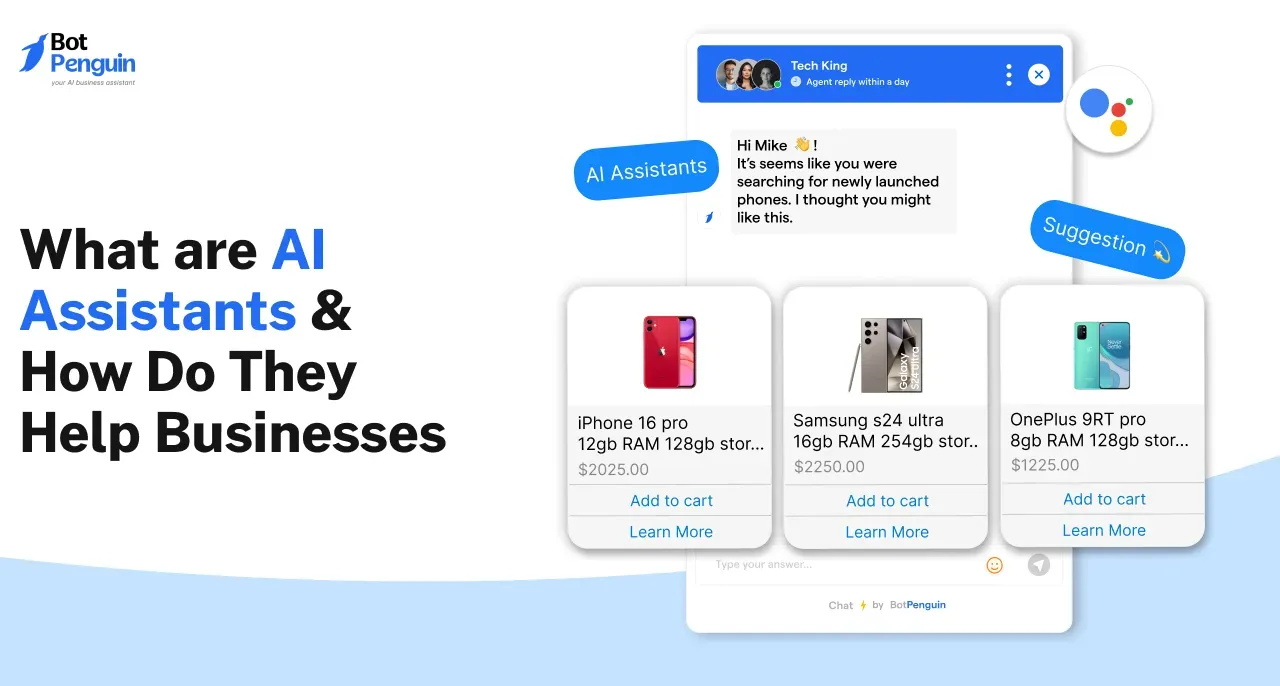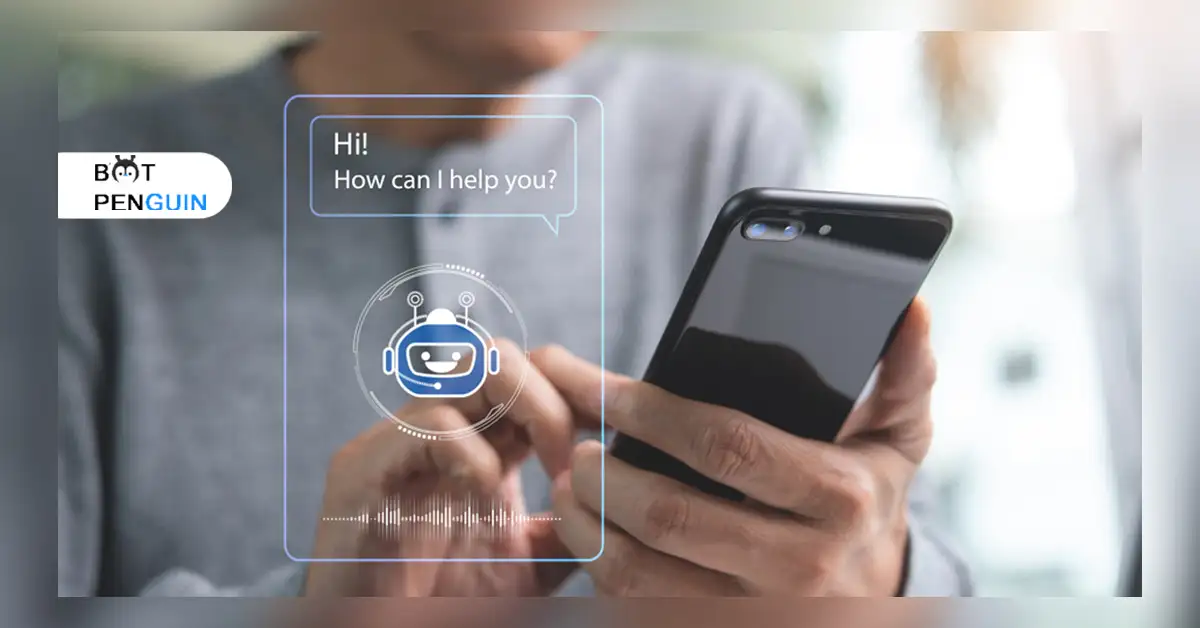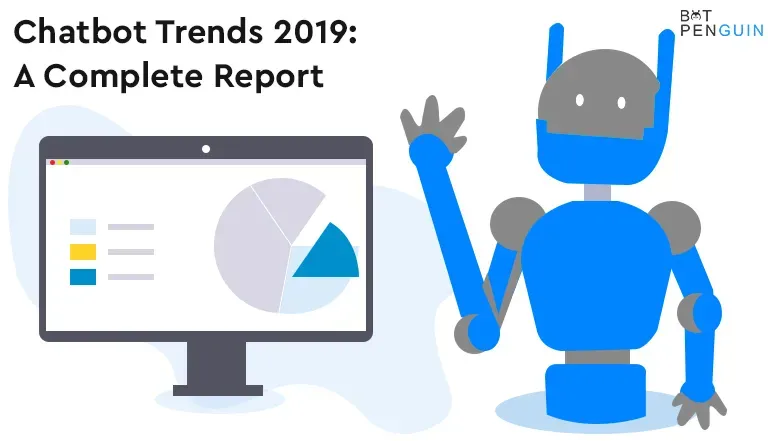The healthcare industry is on the verge of a revolution, and a major player driving this change is artificial intelligence (AI). Among the multitude of AI-driven tools available, ChatGPT stands out for its remarkable potential to shape the future of healthcare.
But just how transformative can ChatGPT be?
According to a recent Accenture report, AI applications can potentially create $150 billion in annual savings for the healthcare industry by 2026.
By offering advanced communication capabilities, ChatGPT can contribute to massive cost reductions while simultaneously improving the overall patient experience and streamlining intensive processes.
From simplifying patient interactions to speeding up medical research and diagnosing ailments, the applications of ChatGPT in healthcare are expansive.
As the industry embraces digitalization, ChatGPT could help bridge the gap between cutting-edge technology and traditional practices.
Are you intrigued by the endless possibilities AI offers to the world of healthcare? If so, read this blog to explore the exciting potential of ChatGPT and how it may revolutionize healthcare for the better.
What is ChatGPT?
ChatGPT is an AI-powered chatbot designed to simulate human-like conversations with users. It is built around the GPT (Generative Pre-trained Transformer) machine-learning model with prompts as instructions.
ChatGPT Prompts has been trained on vast amounts of text data to learn the patterns and nuances of language. ChatGPT can understand natural language and generate human-like responses to various conversational topics.
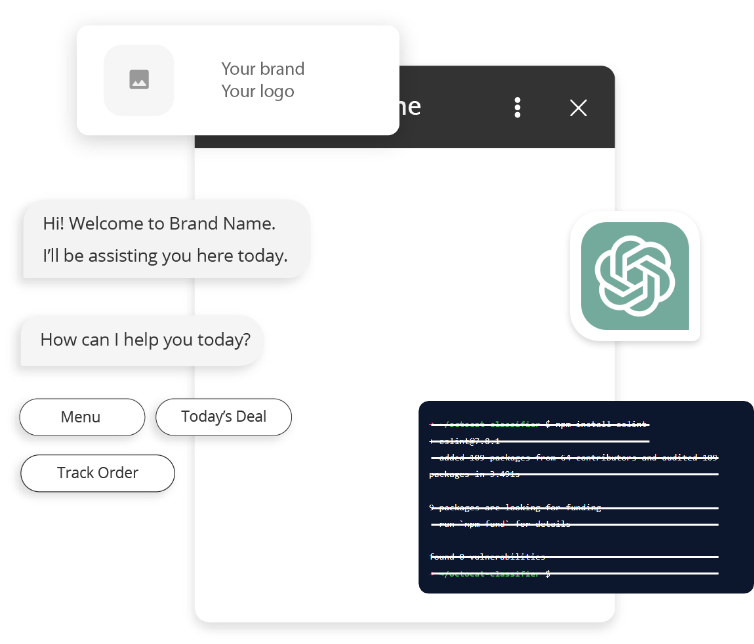
Here are a few facts about AI, ChatGPT, and healthcare:
- Globally, over 3 billion people reportedly used digital health services in 2022.
- Over the next several years, AI usage in healthcare will increase by 40% yearly.
- Disease diagnosis, treatment suggestions, and patient care personalization are currently possible using AI.
- Additionally, new pharmaceuticals and medical technology get developed using AI.
How does ChatGPT work in healthcare?
ChatGPT has found substantial applications in the healthcare sector, providing new avenues for patient engagement, data collection, and health information dissemination.
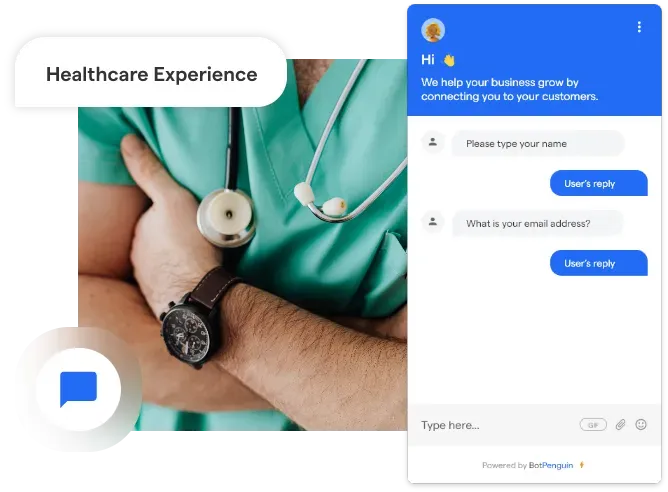
Patient Engagement
ChatGPT can serve as a 24/7 patient engagement tool, readily available to answer patient queries, schedule appointments, and provide care guidance.
It aids in maintaining constant communication with patients, enhancing their healthcare experience.
Symptom Checkers and Preliminary Diagnosis
ChatGPT can be programmed to function as an AI-powered symptom checker, asking a series of questions to understand a patient's condition better.
While it doesn't replace a doctor, it provides preliminary assessments or suggestions that can guide patients on their next steps.
Medication Reminders and Follow-ups
ChatGPT can be used to remind patients to take their medications on time or follow their doctor’s advice.
It can also help caregivers by monitoring the health status of patients, ensuring follow-up on their recovery progress or upcoming appointments.
Health Information Dissemination
ChatGPT can deliver important health information or updates to patients, serving as a reliable source of education materials.
It can answer frequently asked questions or describe complex health concepts in an easy-to-understand manner, enhancing patient knowledge and awareness.
Personal Health Records Management
With AI capabilities, ChatGPT can assist patients in managing their health records, providing timely access to medical history when required.
It helps patients to manage their health better, keeping track of their medications, allergies, test results, and past health issues.
Remember, while ChatGPT can assist in healthcare, it doesn't replace professional medical advice.
Suggested Reading:
Appointment Booking chatbot solutions for hospitals by BotPenguin
What are the ChatGPT Use Cases in Healthcare?
ChatGPT is transforming the landscape of healthcare in unimaginable ways. Let's delve into some key use cases:
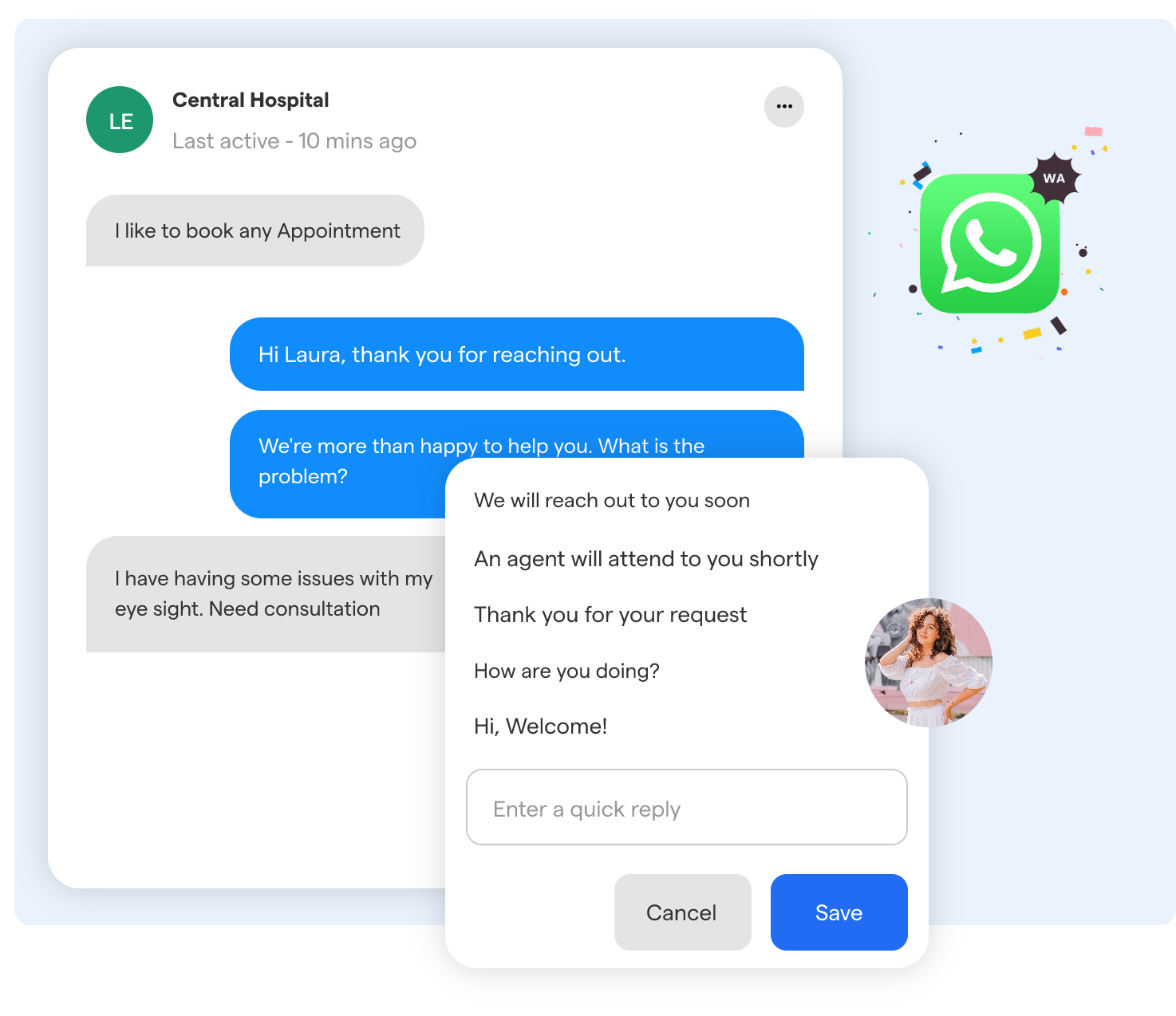
Simplifying Patient-Provider Communication
ChatGPT allows for a dynamic, human-like interaction, thus proving instrumental in streamlining communication between patients and doctors. Patients can conveniently ask questions and get immediate responses, enhancing their healthcare experience.
Assisting in Symptom Checking and Diagnosis
ChatGPT can swiftly analyze patient inputs, identify symptoms, and suggest possible conditions. It thus, aids doctors in making a more informed, accurate diagnosis and helps patients understand their health better.
Booking Appointments Made Easy
Integrating ChatGPT into healthcare systems can automate and simplify appointment scheduling. Patients can easily book, reschedule or cancel appointments, thus enhancing efficiency and reducing administrative burdens.
Timely Medication Reminders
ChatGPT can be programmed to send reminders for medication, ensuring patients adhere to their prescriptions and treatment plans, ultimately, improving patient health outcomes.
Mental Health Support
AI can provide support to those dealing with mental health issues. While not a substitute for professional help, ChatGPT can provide resources, lend a listening ear, and offer coping strategies.
Advanced Medical Research
In the realm of research, ChatGPT can help with data processing and pattern identification, enabling researchers to make more informed decisions, understand trends, and potentially unravel medical breakthroughs.
And with BotPenguin you get to serve your patients on the platform they are:
Potential Challenges and Limitations of ChatGPT in Healthcare
While the potential benefits of ChatGPT in healthcare are significant, there are some possible challenges and limitations, like:
Privacy and Security Concerns
ChatGPT relies on access to large amounts of patient data to function effectively, which can raise privacy and security concerns.
Ensuring that sensitive patient health information is kept secure and confidential will be critical to building trust and adopting ChatGPT in healthcare.
Legal and Regulatory Challenges
The legal and regulatory landscape surrounding AI-powered chatbots in healthcare is still evolving. Healthcare providers must navigate a complex web of regulations and guidelines to ensure that their use of ChatGPT is legal and ethical.
AI Bias
AI-powered chatbots like ChatGPT can be susceptible to bias, especially if trained on biased data. ChatGPT must base on diverse and representative data that reflects the populations it serves to minimize the risk of bias in healthcare.
Acceptance
Healthcare practitioners and patients must be willing to accept ChatGPT as a helpful tool. It may take some time and study to do this.
Suggested Reading:
What are some other AI technologies that are present in healthcare?
Other AI technologies that are present in the healthcare industry include:
Natural Language Processing (NLP)
NLP, the ability to process and understand human language, finds applications in healthcare for tasks like document analysis, medical coding, and processing electronic health records.
It facilitates better understanding of patient needs, extraction of useful data, and streamlining healthcare operations.
Machine Learning and Predictive Analytics
Machine learning algorithms and predictive analytics enable the identification of patterns in healthcare data. These tools can be used to predict patient outcomes, stratify risk, and aid in clinical decision-making, ultimately contributing to improved patient care.
Computer Vision and Medical Imaging
AI-driven computer vision plays a critical role in medical imaging by automatically analyzing and interpreting images, such as X-rays, CT scans, and MRIs.
With deep learning algorithms, AI can help identify and diagnose medical conditions with increased accuracy and speed, often matching or surpassing human experts.
Precision Medicine
AI can facilitate the development of precision medicine, which customizes healthcare based on an individual's genetics, lifestyle, and environment.
By analyzing vast amounts of patient data, AI can guide physicians in prescribing personalized treatment plans that are tailored to each patient's unique needs.
Robotics and Surgery
AI-powered robots have revolutionized surgery by enhancing precision, reducing errors, and improving patient recovery time.
Examples include the da Vinci Surgical System and Mako Robotic-Arm Assisted Surgery, which use AI algorithms to assist surgeons and improve outcomes in minimally invasive procedures.
These are just a few examples of the transformative power of AI technologies in healthcare, opening up new possibilities for more effective and personalized medical care.
Conclusion
ChatGPT can potentially revolutionize healthcare by contributing significantly to the sector. It's capacity for comprehending and producing writing that resembles a person's can help with general health concerns.
ChatGPT can help by improving patient engagement and streamlining administrative tasks. It can also enhance diagnostic accuracy and provide personalized healthcare recommendations.
ChatGPT can improve the effectiveness and accessibility of healthcare services by utilizing enormous volumes of medical data.
It's crucial to remember that ChatGPT shouldn't take the role of medical experts. Instead, it should assist them with its power of fast working capabilities.
While some potential challenges and limitations are present, the benefits of ChatGPT in healthcare are significant. To enable the safe and responsible implementation of ChatGPT and AI technologies in healthcare, ethical issues, privacy concerns, and the requirement for accurate medical information must be carefully considered.
As AI continues to evolve, ChatGPT will undoubtedly play a crucial role in transforming the way we think about healthcare communication.
Frequently Asked Question (FAQs)
Can ChatGPT assist healthcare professionals in diagnosing medical conditions?
ChatGPT can support healthcare professionals by providing information and insights, but it should not replace a doctor's expertise. It can offer suggestions and assist in decision-making.
How can ChatGPT improve patient education and communication in healthcare?
ChatGPT can simplify complex medical concepts and provide clear explanations. It can also facilitate communication between patients and healthcare providers, enhancing understanding and engagement.
Is ChatGPT secure for handling sensitive patient data?
ChatGPT emphasizes data privacy and security, but it's crucial to use platforms or providers that are compliant with healthcare data protection regulations such as HIPAA to ensure the safety of patient information.
Can ChatGPT be used in telemedicine or remote patient monitoring?
Yes, ChatGPT can play a role in telemedicine by offering virtual consultations, remote monitoring guidance, and answering patient inquiries. It can enhance access to healthcare from remote locations.
How can ChatGPT contribute to medical research and data analysis?
ChatGPT can analyze large volumes of medical literature, identify patterns, and assist in literature reviews. It enables researchers to derive insights, accelerate discoveries, and make informed decisions.

